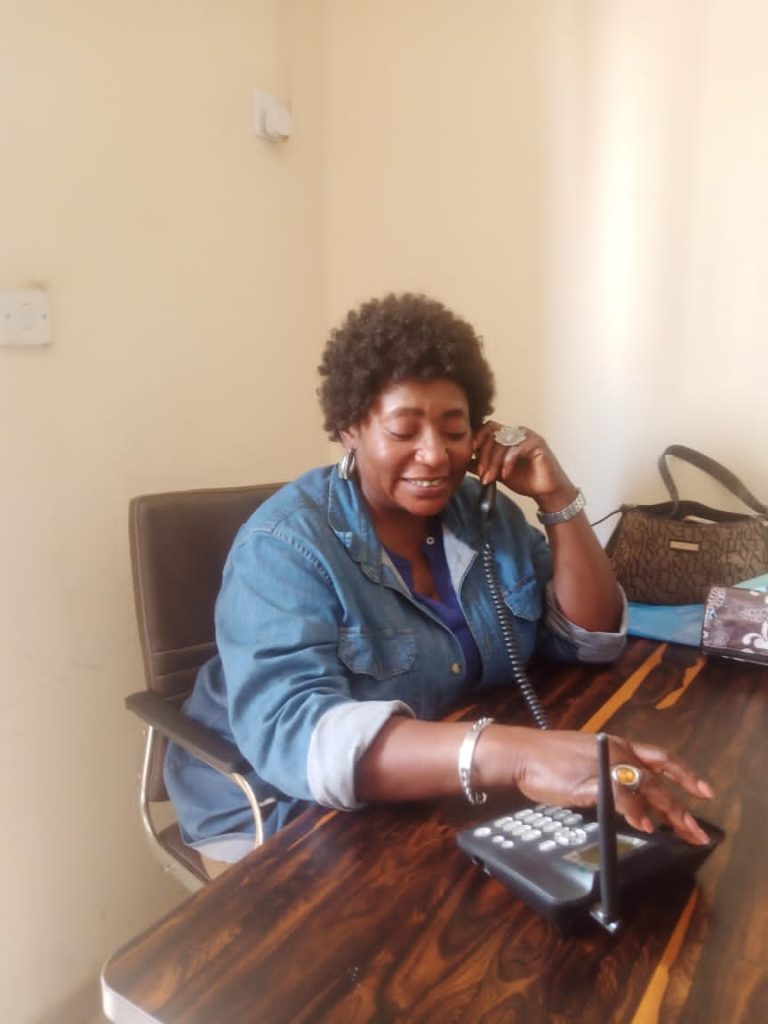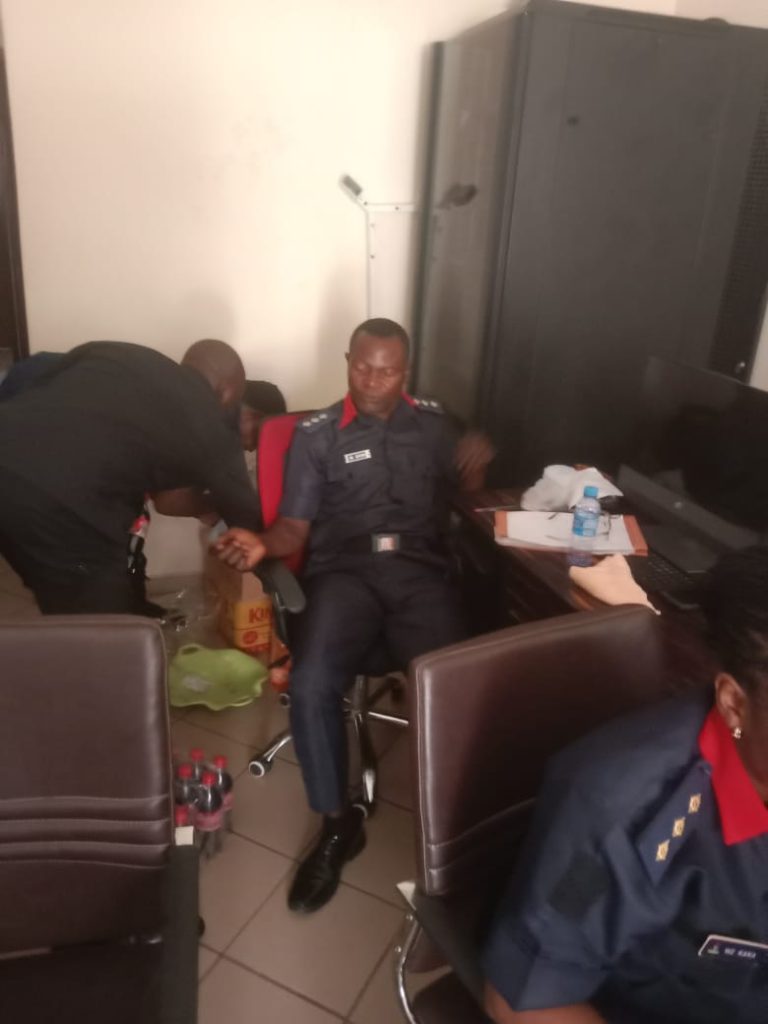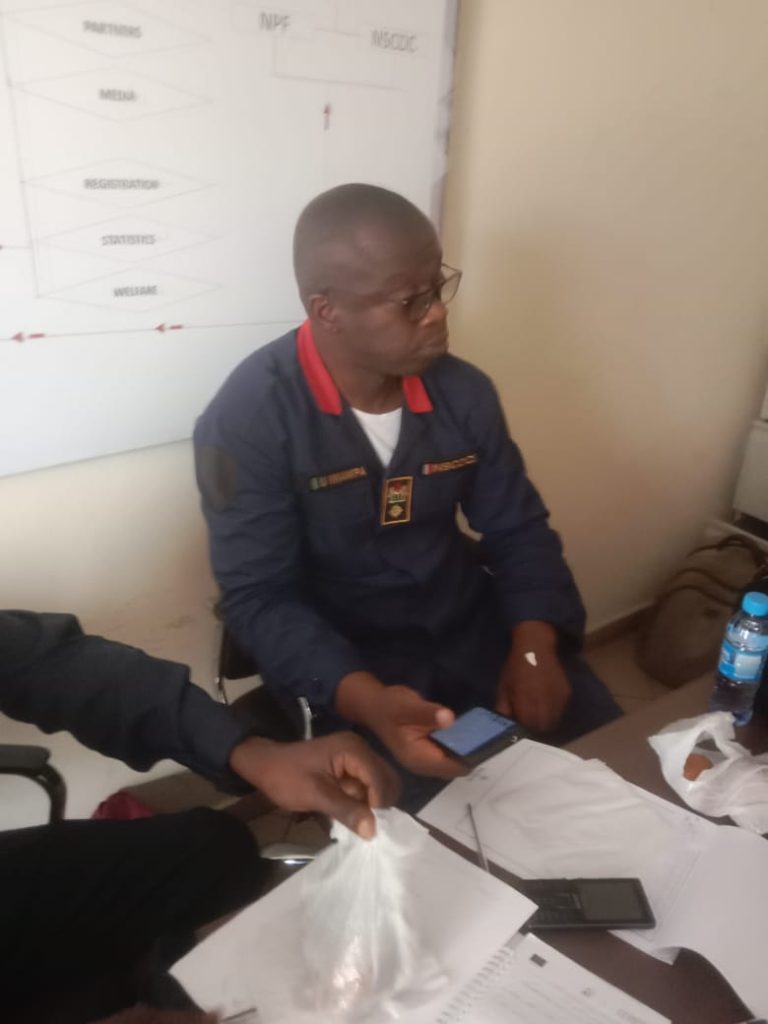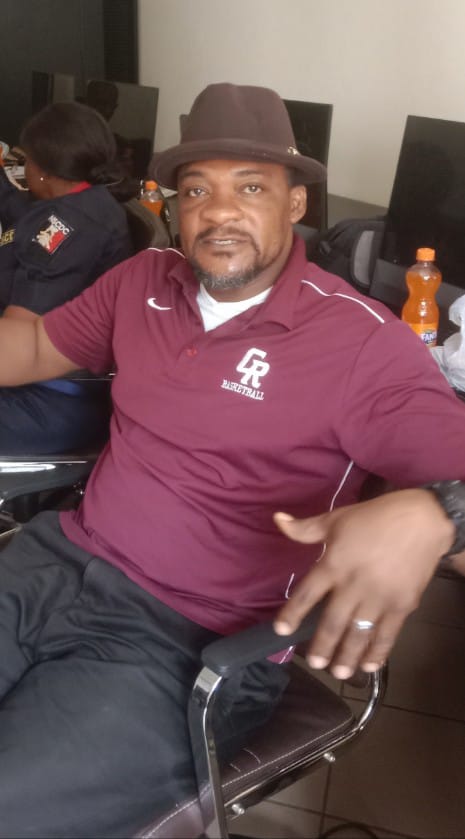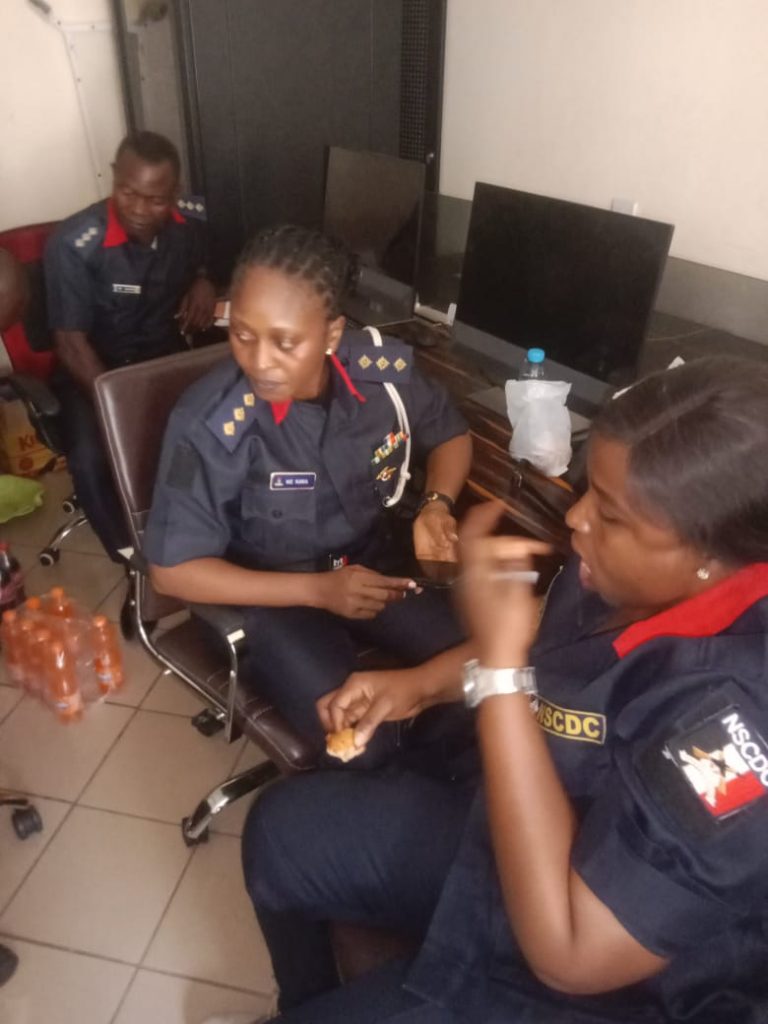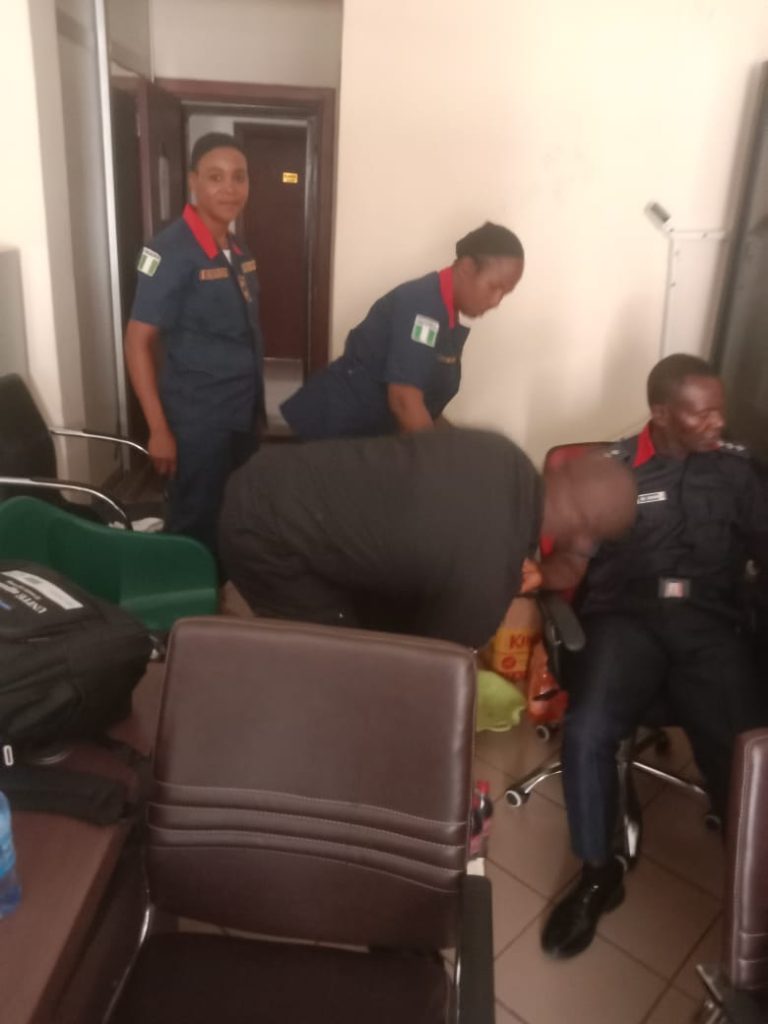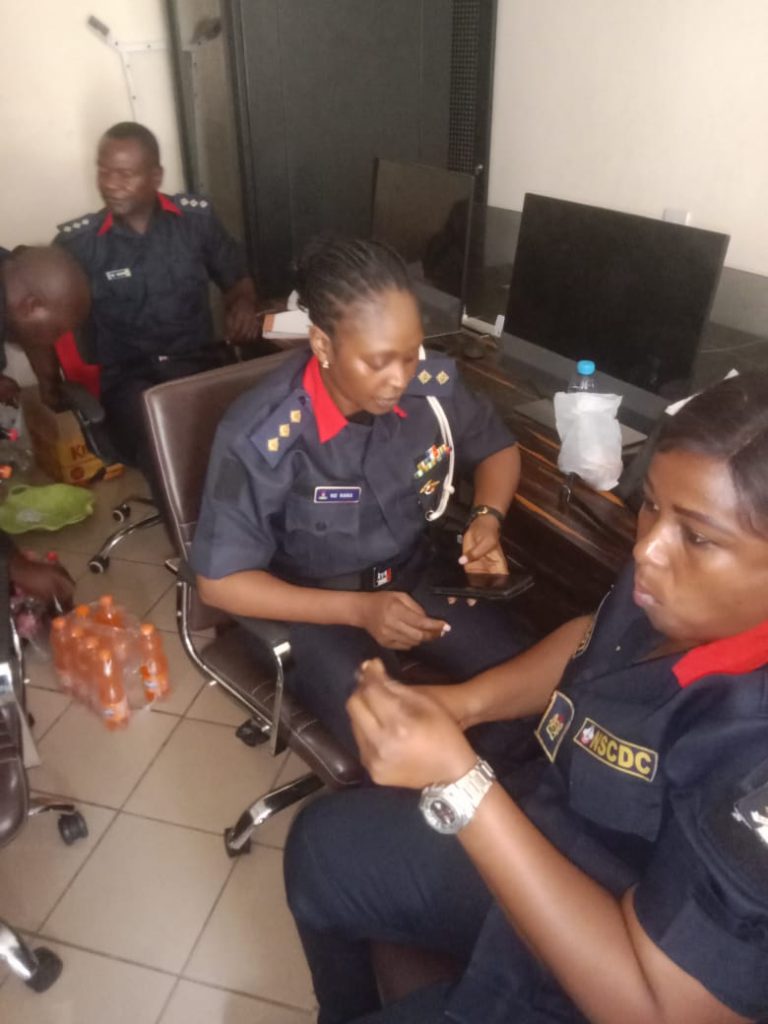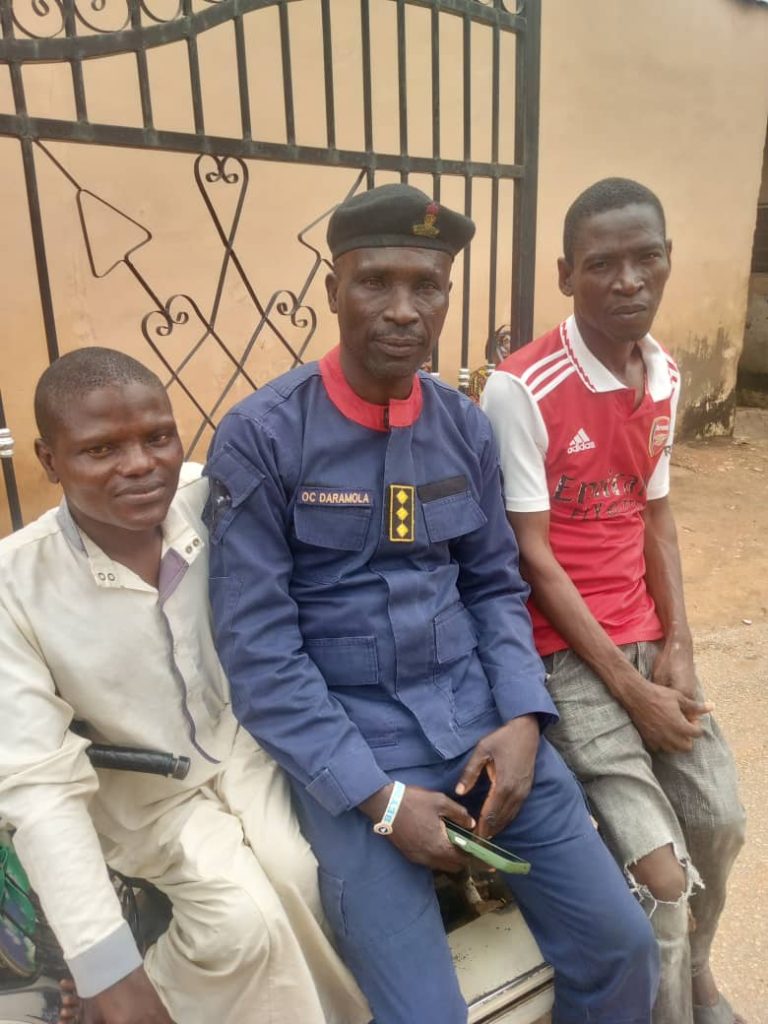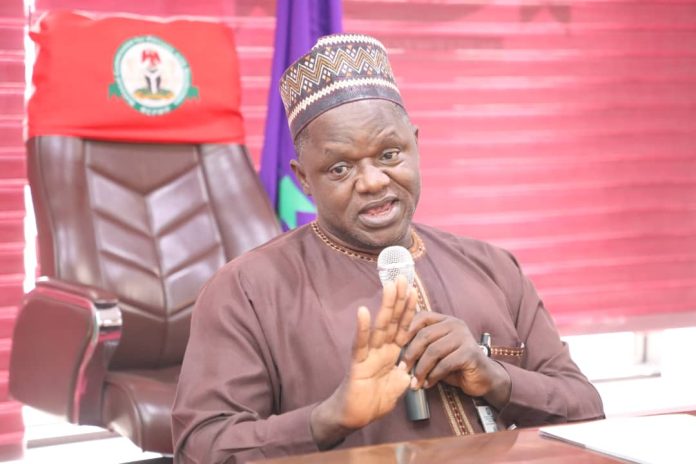Abuja, Nigeria – September 21, 2024
With an estimated 35 million Persons with Disabilities (PWDs) in Nigeria, the National Commission for Persons with Disabilities (NCPWD) has reiterated its unwavering commitment to safeguarding the voting rights and civic participation of this marginalized population in the nation’s electoral process. This assurance was delivered by the Executive Secretary of NCPWD, Chief Ayuba Gufwan, during a live interview at the Commission’s headquarters in Abuja, where a situation room had been set up to monitor the ongoing gubernatorial and local government elections in Edo and Kwara States.
The establishment of this monitoring center represents a significant step towards ensuring that PWDs are not sidelined in the democratic process and that their voices are heard loud and clear. It underscores the Commission’s resolve to protect and promote the electoral rights of millions of Nigerians with disabilities, in line with the Discrimination Against Persons with Disabilities (Prohibition) Act of 2018.
Positive Reports and Compliance with Disability Rights
Chief Ayuba Gufwan expressed his satisfaction with the way the Independent National Electoral Commission (INEC) had ensured compliance with the provisions of the Discrimination Against Persons with Disabilities Act by prioritizing PWDs at polling units. “We are getting positive reports about the special treatment given to Persons with Disabilities in some of the wards where elections are taking place today,” Gufwan remarked with optimism.
His statement is a beacon of hope for millions of PWDs across Nigeria who have historically faced various challenges in exercising their fundamental right to vote. Many PWDs often experience discrimination, inaccessibility, and a lack of supportive infrastructure during elections, but the latest reports suggest that the tide may be turning in their favor.
The Executive Secretary commended INEC for its efforts in adhering to the 2018 Act, which mandates that persons with disabilities must be given priority in electoral processes. “The rights of persons with disabilities in Nigeria will always be protected at any given elections,” he emphasized, reinforcing the NCPWD’s commitment to monitoring and ensuring full participation and representation of PWDs in Nigeria’s political landscape.
Field Observations and Experiences of PWDs During Elections
The monitoring exercise, led by NCPWD in collaboration with other stakeholders, provided first-hand observations of the voting experiences of PWDs in different wards and polling units across Edo and Kwara States. These reports paint a picture of the diverse experiences faced by PWDs as they attempted to exercise their franchise.
Patience Andepu, the National Coordinator of the Disability Desk Office at the NCPWD and Deputy Commandant of the Nigeria Security and Civil Defence Corps (NSCDC), shared a positive account from Esan West, Ward 9, in Edo State. According to Andepu, a PWD was seen at the polling unit casting their vote without any discomfort, demonstrating that when adequate arrangements are made, PWDs can participate fully and independently in the electoral process.
Moreover, several PWDs were also observed exercising their civic rights at the Oredo Local Government Area of Edo State. Specifically, at Units 1, 2, 3, 4, and 5, visually impaired and wheelchair-bound individuals were reported to have successfully cast their votes, highlighting the potential for an inclusive voting environment when accessibility measures are in place.
However, it wasn’t all smooth sailing. Andepu also reported a challenge of accessibility in Edo North, Otaru Ward, where a physically disabled individual encountered difficulty accessing the polling unit. Thankfully, NSCDC Disability Desk Officers deployed to the station intervened and assisted the voter, ensuring they could participate in the electoral process.
This incident serves as a reminder that while progress is being made, more work needs to be done to ensure that all polling units across the country are fully accessible to PWDs, allowing them to vote without facing any barriers or obstacles.
Challenges in Kwara State and the Impact on PWDs’ Participation
Meanwhile, in Kwara State, the situation proved to be more challenging. A media correspondent reported that at Balogun Ward, Unit 10, violent disruptions marred the local government elections, making it difficult for many people to cast their votes. This chaotic environment, unfortunately, led to an absence of PWDs at the polling center, as they were understandably deterred by the violence and potential risks involved.
The inability of PWDs to participate in the elections at this polling unit underscores the need for enhanced security measures and a more inclusive, safe, and accessible voting environment. This is essential to ensure that PWDs are not discouraged from exercising their democratic rights due to fear of violence or intimidation.
NCPWD’s Ongoing Commitment and Advocacy
The NCPWD, under the leadership of Chief Ayuba Gufwan, remains committed to advocating for the full inclusion and participation of PWDs in Nigeria’s political and electoral processes. By establishing the situation room to monitor PWD participation in real time, the Commission demonstrated its dedication to ensuring that the voices of PWDs are heard, respected, and protected.
Chief Gufwan’s assertion that the franchise of PWDs “can never be undermined” reflects a larger vision for a Nigeria where inclusivity and equal rights are not just aspirations but a reality. The positive reports from some polling units serve as a testament to the strides that have been made, but they also highlight the journey that still lies ahead in achieving total inclusion.
Conclusion: A Step Towards Inclusive Democracy
The participation of persons with disabilities in the ongoing elections in Edo and Kwara States serves as both a milestone and a reminder of the importance of inclusive democracy. While progress has been made, with reports of special treatments and priority given to PWDs at several polling units, the challenges faced in certain areas—such as accessibility barriers and violence—underscore the work that still needs to be done to make Nigeria’s electoral process fully inclusive.
The NCPWD’s active involvement and monitoring efforts mark a pivotal step toward ensuring that every Nigerian, regardless of their ability, is empowered to exercise their right to vote without hindrance. The Commission’s call to action for greater accessibility, awareness, and protection of PWDs’ rights will continue to resonate as the nation moves toward a more inclusive and equitable future.
As Nigeria continues to build its democratic foundation, it is essential that the voices of all citizens, including those with disabilities, are heard, respected, and prioritized. The NCPWD’s efforts, along with INEC’s compliance, signal a positive direction for the nation’s commitment to disability inclusion. However, it is crucial that this momentum is maintained and that actionable steps are taken to ensure that no PWD is left behind in Nigeria’s journey towards a more inclusive democracy.
NCPWD Media Team, NSCDC attached NCPWD at Situation Room monitoring INEC compliance level to Disability inclusion at the ongoing election in Edo and Kwara State
